Beginner Guide
When forming a party in any tabletop roleplaying game—especially in systems like my custom D&D ruleset, party composition is more than just choosing characters you think are cool. It requires careful thought, collaboration, and balance. A well-rounded party can handle a wide range of challenges. A poorly planned one might struggle in combat, exploration, or social encounters. Here are the key aspects and cautions to keep in mind when creating a party:
Backstory
Creating a character backstory is one of the most rewarding steps in building a character for a roleplaying game—it gives your hero depth, personal stakes, and a reason to care about the world they live in. Below is a guide to help you craft a compelling, memorable, and gameplay-relevant backstory. It is important to contact the DM for details within the setting to ensure your characters backstory lines up with the world they are within. For example use basics such as your character is from a barren coastal city, then talk to the DM and he can inform you of what in game location best lines up with your vision.
Start with the basics:
- Balance of Roles: Ensure the party includes a healthy mix of roles to avoid gaps in capability. This does not necessarily mean that a party can't include multiple of a single role, as this is also viable as long as the party can operate without the missing strengths.
- Group Synergy: Essentially having players on the same page of what their characters goal is within the party and how they plan to operate.
- Diversity of Strengths: Avoid building a party where everyone does the same thing. Four stealthy Rogues may sound fun—until the group has to fight a giant immune to sneak attacks or survive a magical trap none of them can dispel.
- Think beyond just combat: Who handles travel, survival, or foraging? Who navigates political intrigue or diplomacy? Who solves arcane or divine mysteries? Can anyone speak multiple languages, read maps, or detect lies? These moments are where parties with narrow specialties can falter.
- Too Many Lone Wolves: If multiple players make characters who don’t play well with others, it can fracture the party’s cohesion and slow progress.
- Overlapping Needs: Too many characters reliant on concentration spells, sneak attack setups, or frontline space can lead to mechanical conflicts.
- Unclear Roles: If no one takes healing, utility, or defense seriously, the party may not survive even early threats.
Artificer
Artificers are inventors, engineers, and arcane scientists—brilliant minds who blend magic with technology to forge wonders the world has never seen. Where a wizard studies the flow of arcane energy and a fighter masters the art of the blade, an Artificer builds power with hammer, blueprint, and a spark of genius.
Channeling magic through enchanted tools, mechanical devices, and bizarre contraptions of their own design. From explosive alchemical grenades to arcane-infused turrets, animated weapons, and defensive gadgets, an Artificer turns the battlefield into a playground of ingenuity. Each tool they craft is tailored for a specific need—destruction, protection, control, or support.
Though not frontline warriors themselves, Artificers are battlefield tacticians who thrive on utility and adaptability. Positioned just behind the melee, they analyze the flow of combat, deploy gadgets where they’re most effective, and unleash bursts of magic-infused invention to disrupt enemy plans or empower allies.
Channeling magic through enchanted tools, mechanical devices, and bizarre contraptions of their own design. From explosive alchemical grenades to arcane-infused turrets, animated weapons, and defensive gadgets, an Artificer turns the battlefield into a playground of ingenuity. Each tool they craft is tailored for a specific need—destruction, protection, control, or support.
Though not frontline warriors themselves, Artificers are battlefield tacticians who thrive on utility and adaptability. Positioned just behind the melee, they analyze the flow of combat, deploy gadgets where they’re most effective, and unleash bursts of magic-infused invention to disrupt enemy plans or empower allies.
Barbarian
Barbarians are feral titans of the battlefield, driven by primal fury and raw physicality. They fight not with refined technique, but with the unrelenting savagery of a wild beast unleashed.
In combat, they are unmatched when it comes to enduring pain and delivering punishing blows. With each strike, they batter their enemies with brute strength, overwhelming finesse and armor with sheer power.
Barbarians are ideal frontline fighters—fearless, relentless, and often the first into battle and the last to leave. Whether they fight for glory, vengeance, or survival, one thing is certain: when a Barbarian enters the fray, the battlefield trembles.
In combat, they are unmatched when it comes to enduring pain and delivering punishing blows. With each strike, they batter their enemies with brute strength, overwhelming finesse and armor with sheer power.
Barbarians are ideal frontline fighters—fearless, relentless, and often the first into battle and the last to leave. Whether they fight for glory, vengeance, or survival, one thing is certain: when a Barbarian enters the fray, the battlefield trembles.
Blood Hunter
The Blood Hunter is a relentless warrior, a fusion of steel, discipline, and dark resolve. They are the hunters of horrors, trained to stalk and slay the supernatural. Through secretive rites of hemocraft—blood magic born from old and cursed knowledge—they channel their own vitality into powerful enhancements, willingly trading flesh and sanity for the strength needed to confront ancient evils. A Blood Hunter doesn’t flinch at the cost of power; they bleed for it.
Blood Hunters excel at fighting specific targets, especially creatures like undead, fiends, or fey. Their ability to augment their weapons with blood curses and elemental rites gives them surprising flexibility, allowing them to bypass resistances, cripple regenerating foes, or punish spellcasters. However, this power comes at a cost—many of their abilities draw from their own life force, making them high-risk, high-reward combatants who toe the line between martyr and monster.
Feared by the wicked and distrusted by the righteous, the Blood Hunter walks alone by choice—but when they stand beside a party, they are an unyielding force of vengeance.
Blood Hunters excel at fighting specific targets, especially creatures like undead, fiends, or fey. Their ability to augment their weapons with blood curses and elemental rites gives them surprising flexibility, allowing them to bypass resistances, cripple regenerating foes, or punish spellcasters. However, this power comes at a cost—many of their abilities draw from their own life force, making them high-risk, high-reward combatants who toe the line between martyr and monster.
Feared by the wicked and distrusted by the righteous, the Blood Hunter walks alone by choice—but when they stand beside a party, they are an unyielding force of vengeance.
Cipher
Ciphers are individuals who channel the invisible forces of thought, emotion, and consciousness into tangible, devastating effects. Unlike wizards or sorcerers, Ciphers do not study arcane formulas or draw from external energies. Instead, they weaponize their own minds, turning mental discipline and psionic focus into a force more precise and terrifying than any spell.
In combat, Ciphers strike with invisible blades. They bypass armor, defenses, and illusions—not with brute force, but by attacking where foes are most vulnerable: the mind. With a single psychic lash, they can cause intense pain, disorientation, or paralyzing fear. With deeper focus, they can invade thoughts, suppress memories, or completely dominate an opponent’s will.
A Cipher’s power is deeply personal. It comes not from books, gods, or ancestral blood, but from within—the sharpened edge of thought, the fire of intent, and the vast, often unexplored potential of the brain. They are both scholars of the self and warriors of the psyche. A Cipher doesn’t chant. They don’t draw sigils or summon spirits. They simply think—and the world responds.
In combat, Ciphers strike with invisible blades. They bypass armor, defenses, and illusions—not with brute force, but by attacking where foes are most vulnerable: the mind. With a single psychic lash, they can cause intense pain, disorientation, or paralyzing fear. With deeper focus, they can invade thoughts, suppress memories, or completely dominate an opponent’s will.
A Cipher’s power is deeply personal. It comes not from books, gods, or ancestral blood, but from within—the sharpened edge of thought, the fire of intent, and the vast, often unexplored potential of the brain. They are both scholars of the self and warriors of the psyche. A Cipher doesn’t chant. They don’t draw sigils or summon spirits. They simply think—and the world responds.
Cleric
Clerics are divine champions, chosen—or burdened—by celestial forces, they channel the will of higher beings to heal the wounded, smite the wicked, and protect the innocent. Whether they serve a benevolent deity, a harsh god of judgment, or a forgotten ancient power, Clerics wield their faith as both shield and sword.
Clerics are spellcasters who can mend shattered bones, ward allies against the darkest curses, or call down radiant fury. Their divine magic grants them the ability to turn the tide of any battle, saving their companions from certain doom or punishing those who defy their sacred oaths.
Clerics are among the most powerful support characters in any adventuring party, revered for their unparalleled ability to keep allies alive and fighting. Through divine magic granted by the gods they serve, Clerics can mend wounds in an instant, cure deadly afflictions, and restore strength to those on the brink of death. Their healing spells are not just useful—they are often the difference between victory and total ruin.
Clerics are spellcasters who can mend shattered bones, ward allies against the darkest curses, or call down radiant fury. Their divine magic grants them the ability to turn the tide of any battle, saving their companions from certain doom or punishing those who defy their sacred oaths.
Clerics are among the most powerful support characters in any adventuring party, revered for their unparalleled ability to keep allies alive and fighting. Through divine magic granted by the gods they serve, Clerics can mend wounds in an instant, cure deadly afflictions, and restore strength to those on the brink of death. Their healing spells are not just useful—they are often the difference between victory and total ruin.
Conduit
Conduits are living vessels—individuals who share their body, mind, and fate with a second soul: an ancient, forgotten, or otherworldly entity of immense power. They are both host and prisoner, partner and pawn. Theirs is a path of duality and consequence, for with every surge of strength or borrowed spell, the entity inside stirs—and remembers the world it once ruled, ruined, or revered.
Unlike most classes, the Conduit’s abilities are not innate nor learned in the traditional sense. Their strength depends entirely on the nature of the being within them—a bound soul whose origin could be divine, demonic, draconic, or something even more alien. Some entities grant magical insight; others, raw might or twisted boons. As the bond deepens, the Conduit becomes a reflection of this inner force… or a battleground for control.
While most Conduits can access fragments of their soul-bound partner’s power, they also possess the unique ability to fully relinquish control, allowing the entity to take over their body. This comes at a price: during these moments, the Dungeon Master assumes control, embodying the entity in roleplay and combat. The results may be miraculous—or catastrophic.
Unlike most classes, the Conduit’s abilities are not innate nor learned in the traditional sense. Their strength depends entirely on the nature of the being within them—a bound soul whose origin could be divine, demonic, draconic, or something even more alien. Some entities grant magical insight; others, raw might or twisted boons. As the bond deepens, the Conduit becomes a reflection of this inner force… or a battleground for control.
While most Conduits can access fragments of their soul-bound partner’s power, they also possess the unique ability to fully relinquish control, allowing the entity to take over their body. This comes at a price: during these moments, the Dungeon Master assumes control, embodying the entity in roleplay and combat. The results may be miraculous—or catastrophic.
Druid
Druids are mystical wielders of primal energy, bound not by civilization or deity, but by the ancient and untamed forces of nature itself. They are the voice of the wild, protectors of sacred groves, storm-callers, and beast-tamers who channel the essence of the world in its purest form.
Druids thrive in the chaos of nature, finding strength where others see only wilderness. Their magic is both beautiful and terrifying—storms obey their call, the earth moves at their command, and fire dances across their fingertips like a living creature. This makes them incredibly versatile in any situation.
Whether drawn to the deep forests, the arid deserts, or the icy tundras, Druids embody the will of nature itself—untamed, ever-changing, and impossible to control. To face a Druid in battle is to face the wrath of the world.
Druids thrive in the chaos of nature, finding strength where others see only wilderness. Their magic is both beautiful and terrifying—storms obey their call, the earth moves at their command, and fire dances across their fingertips like a living creature. This makes them incredibly versatile in any situation.
Whether drawn to the deep forests, the arid deserts, or the icy tundras, Druids embody the will of nature itself—untamed, ever-changing, and impossible to control. To face a Druid in battle is to face the wrath of the world.
Fighter
Fighters are the masters of martial combat—honed, disciplined, and deadly with any weapon they wield. Where others rely on magic or divine favor, Fighters depend on precision, technique, and relentless training.
What sets Fighters apart is their adaptability in battle. Whether wielding a greatsword, dual blades, or a shield and spear, a Fighter knows how to make the most of any weapon or armor. While others prepare spells or wait for divine intervention, Fighters act—measured, immediate, and often decisive. They are often the backbone of an adventuring party.
Fighters may lack the mystique of magic, but they are a force to be reckoned with on any battlefield. Their strength is hard-earned, their victories forged through blood and grit. In the heat of battle, when blades clash and chaos reigns, a Fighter stands firm—unyielding, fearless, and ready to carve their legend into the world with steel.
What sets Fighters apart is their adaptability in battle. Whether wielding a greatsword, dual blades, or a shield and spear, a Fighter knows how to make the most of any weapon or armor. While others prepare spells or wait for divine intervention, Fighters act—measured, immediate, and often decisive. They are often the backbone of an adventuring party.
Fighters may lack the mystique of magic, but they are a force to be reckoned with on any battlefield. Their strength is hard-earned, their victories forged through blood and grit. In the heat of battle, when blades clash and chaos reigns, a Fighter stands firm—unyielding, fearless, and ready to carve their legend into the world with steel.
Jaeger
The Jaeger is a warrior who thrives on rhythm, momentum, and lethal efficiency. Unlike a brute-force fighter or a swift rogue, the Jaeger excels in sustained combat where every strike builds toward a devastating finale. Each successful hit fuels their tempo—stacking pressure on the enemy and unlocking the potential for deadly finisher techniques that can end a fight in a single calculated blow. They're not just weapon masters—they're executioners of pace, transforming relentless offense into explosive payoff.
Whether wielding a long rifle and dispatching foes from a distance, or weaving through the fray with a pistol in one hand and a short blade in the other, the Jaeger is constantly in motion. Their combat style is fluid and aggressive—they apply pressure and punish hesitation.
In the party, the Jaeger plays the role of sustained damage-dealer, skirmisher, and burst assassin. They’re ideal for hunting down elusive or heavily armored targets—wearing them down with rapid hits before delivering a killing blow. They can hold their own on the front line or dart between threats, always looking to capitalize on openings.
Whether wielding a long rifle and dispatching foes from a distance, or weaving through the fray with a pistol in one hand and a short blade in the other, the Jaeger is constantly in motion. Their combat style is fluid and aggressive—they apply pressure and punish hesitation.
In the party, the Jaeger plays the role of sustained damage-dealer, skirmisher, and burst assassin. They’re ideal for hunting down elusive or heavily armored targets—wearing them down with rapid hits before delivering a killing blow. They can hold their own on the front line or dart between threats, always looking to capitalize on openings.
Monk
Monks are masters of discipline, speed, and inner strength—warriors who channel the power of body and spirit to achieve supernatural feats. Forged through rigorous training and a devotion to perfecting themselves.
Monks harness their ki, a life force that flows through all living things. They are living weapons—capable of delivering a flurry of strikes, disarming foes in a blink, or stunning enemies with a single focused blow. Their hands are as deadly as any blade.
In battle, they are a blur—darting in and out of reach, overwhelming their opponents with speed and control. Many specialize in unique martial traditions, from open-palm mastery to shadowy stealth or elemental strikes.
Monks harness their ki, a life force that flows through all living things. They are living weapons—capable of delivering a flurry of strikes, disarming foes in a blink, or stunning enemies with a single focused blow. Their hands are as deadly as any blade.
In battle, they are a blur—darting in and out of reach, overwhelming their opponents with speed and control. Many specialize in unique martial traditions, from open-palm mastery to shadowy stealth or elemental strikes.
Magus
Maguses are arcane duelists who walk the razor’s edge between martial prowess and spellcraft—masters of neither, but wielders of both. Too unrefined in magic to match a wizard, too physically limited to rival a fighter, the Magus is defined by discipline, not dominance. Their strength lies in synergy: combining modest spellcasting with practiced weapon strikes to become a graceful force of precision and timing.
Success as a Magus comes from rhythm—knowing when to cast, when to swing, and when to fuse the two. They are duelists, battlefield tacticians, and arcane tacticians rolled into one, best used by players who embrace timing, spacing, and clever play.
The Magus is a walking contradiction—half sword, half spell. Their power doesn’t come from excelling, but from combining. They are artists of the battlefield, blending precision, motion, and magic into a deadly dance. While others master a single path, the Magus carves their own—imperfect, dangerous, and endlessly adaptable.
Success as a Magus comes from rhythm—knowing when to cast, when to swing, and when to fuse the two. They are duelists, battlefield tacticians, and arcane tacticians rolled into one, best used by players who embrace timing, spacing, and clever play.
The Magus is a walking contradiction—half sword, half spell. Their power doesn’t come from excelling, but from combining. They are artists of the battlefield, blending precision, motion, and magic into a deadly dance. While others master a single path, the Magus carves their own—imperfect, dangerous, and endlessly adaptable.
Occultist
Occultists are spellcasters whose power does not stem from study, bloodline, or divine favor—but from the deep inheritance of tradition, the whispers of forgotten pacts, and the unseen currents of the spirit world. They are the bridges between the mystical past and the mystical present, interpreters of the sacred, the haunted, and the forbidden.
The Occultist plays a flexible and narrative-rich role within a party, acting as both a mystical support caster and a supernatural advisor. While not a powerhouse in terms of raw damage, they excel in debilitation, disruption, and spiritual control. On the battlefield, they function as midline spellcasters who weaken enemies through hexes, curses, and protective wards, often invoking named spirits or ancient bargains to manifest their magic.
Outside combat, the Occultist is a font of esoteric knowledge and a guide through haunted ruins or divine mysteries, often the only one who can interpret omens, commune with spirits, or safely interact with cursed artifacts. In a party, they serve as a thematic bridge between arcane theory and divine reverence, making them both feared and relied upon, especially when dealing with the unknown.
The Occultist plays a flexible and narrative-rich role within a party, acting as both a mystical support caster and a supernatural advisor. While not a powerhouse in terms of raw damage, they excel in debilitation, disruption, and spiritual control. On the battlefield, they function as midline spellcasters who weaken enemies through hexes, curses, and protective wards, often invoking named spirits or ancient bargains to manifest their magic.
Outside combat, the Occultist is a font of esoteric knowledge and a guide through haunted ruins or divine mysteries, often the only one who can interpret omens, commune with spirits, or safely interact with cursed artifacts. In a party, they serve as a thematic bridge between arcane theory and divine reverence, making them both feared and relied upon, especially when dealing with the unknown.
Proletarian
Proletarians are the unsung underdogs of the adventuring world—grimy, calloused, and stubborn beyond reason. They aren’t born of noble blood, chosen by gods, or blessed with arcane talent. What they are, is tireless. With blistered hands and aching limbs, Proletarians push forward where others fall. They rely on hard work, superstition, and pure willpower to survive—and eventually thrive.
Playing a Proletarian is a test of endurance. At first glance, they appear painfully average—no flashy spells, no divine gifts, no unmatched swordplay. But beneath that humble exterior is a foundation of unyielding grit. Every minor success is hard-earned. Every victory is a story they’ll proudly exaggerate around the campfire.
What sets the Proletarian apart is their sheer adaptability. With no set battlefield role, they fill whatever gap needs filling—swinging a sword one day, lugging the party’s gear the next, or distracting a foe with sheer nerve. Their progress is slow, but steady. As the campaign goes on, they can specialize into the strengths of other classes, gradually becoming a reflection of their experiences and the people they’ve fought beside. They are the ultimate late bloomer—a living testament that greatness can be forged, not just inherited.
Playing a Proletarian is a test of endurance. At first glance, they appear painfully average—no flashy spells, no divine gifts, no unmatched swordplay. But beneath that humble exterior is a foundation of unyielding grit. Every minor success is hard-earned. Every victory is a story they’ll proudly exaggerate around the campfire.
What sets the Proletarian apart is their sheer adaptability. With no set battlefield role, they fill whatever gap needs filling—swinging a sword one day, lugging the party’s gear the next, or distracting a foe with sheer nerve. Their progress is slow, but steady. As the campaign goes on, they can specialize into the strengths of other classes, gradually becoming a reflection of their experiences and the people they’ve fought beside. They are the ultimate late bloomer—a living testament that greatness can be forged, not just inherited.
Ranger
Rangers are expert survivalists, deadly marksmen, and silent hunters who thrive where others would falter. Rangers are masters of tracking, scouting, and striking with lethal precision.
Equally skilled with bow or blade, Rangers are versatile combatants who can pick off enemies from a distance or engage with swift, calculated strikes in close quarters. Their connection to nature allows them to move unnoticed through dense forests, harsh deserts, and frozen tundras—always one step ahead of their prey.
In any campaign, they serve as scouts, hunters, and warriors, their presence ensuring no path is ever truly safe for those who would threaten the natural order.
Equally skilled with bow or blade, Rangers are versatile combatants who can pick off enemies from a distance or engage with swift, calculated strikes in close quarters. Their connection to nature allows them to move unnoticed through dense forests, harsh deserts, and frozen tundras—always one step ahead of their prey.
In any campaign, they serve as scouts, hunters, and warriors, their presence ensuring no path is ever truly safe for those who would threaten the natural order.
Rogue
Rogues are masters of stealth, speed, and cunning—agents of chaos or precision who strike from the shadows and disappear before their enemies can react. Whether they are assassins, spies, thieves, or scouts, Rogues live by their wits and thrive where others falter: in the dark alleys, tight corridors, and moments of hesitation where a single mistake means death.
Their greatest weapon is not just the dagger or the bow, but the element of surprise. Rogues are adept at bypassing traps, cracking locks, reading lips, and vanishing without a trace, their sharp mind and sharper instincts make them invaluable in urban intrigue or dungeon crawling alike.
To underestimate a Rogue is to invite disaster. One moment, they are nowhere to be seen. The next, your coin is gone, your secrets are exposed—and a blade rests silently at your back.
Their greatest weapon is not just the dagger or the bow, but the element of surprise. Rogues are adept at bypassing traps, cracking locks, reading lips, and vanishing without a trace, their sharp mind and sharper instincts make them invaluable in urban intrigue or dungeon crawling alike.
To underestimate a Rogue is to invite disaster. One moment, they are nowhere to be seen. The next, your coin is gone, your secrets are exposed—and a blade rests silently at your back.
Scholar
Scholars are seekers of truth, wielders of forgotten knowledge, and architects of arcane and intellectual power. They do not charge into battle clad in steel, nor do they call upon divine forces—they rely instead on their brilliance, research, and mastery of the mysteries that shape the world. Whether delving into ancient ruins, decoding forbidden tomes, or analyzing the nature of reality itself, Scholars are driven by an unquenchable thirst for understanding.
In a party, Scholars act as strategists, problem-solvers, and arcane support—deciphering riddles, disabling magical wards, or predicting an enemy’s next move. But their true strength lies in preparation: they learn, adapt, and return stronger, armed with the precise knowledge needed to overcome any challenge.
To face a Scholar is to face the culmination of thousands of years of thought, theory, and study—a mind sharpened like a blade, and a will backed by the power of revelation.
In a party, Scholars act as strategists, problem-solvers, and arcane support—deciphering riddles, disabling magical wards, or predicting an enemy’s next move. But their true strength lies in preparation: they learn, adapt, and return stronger, armed with the precise knowledge needed to overcome any challenge.
To face a Scholar is to face the culmination of thousands of years of thought, theory, and study—a mind sharpened like a blade, and a will backed by the power of revelation.
Wizard
Wizards are the quintessential arcane intellects. With a spellbook in hand, a Wizard can cast magical projectiles, bend time and space, trap minds in illusions, or unravel the magic of others with a single word.
While Wizards are physically fragile, they are experts at staying out of harm’s way. They thrive on the backline, positioned safely behind sturdier allies while unleashing devastating spells from a distance. From the safety of cover or an elevated vantage point, a Wizard can rain destruction or manipulate the fight without ever needing to step into the fray.
To witness a Wizard at the height of their power is to see the laws of the world rewritten before your eyes. They are not born great—they become it, one page, one spell, one revelation at a time.
While Wizards are physically fragile, they are experts at staying out of harm’s way. They thrive on the backline, positioned safely behind sturdier allies while unleashing devastating spells from a distance. From the safety of cover or an elevated vantage point, a Wizard can rain destruction or manipulate the fight without ever needing to step into the fray.
To witness a Wizard at the height of their power is to see the laws of the world rewritten before your eyes. They are not born great—they become it, one page, one spell, one revelation at a time.
Warlord
Warlords are battlefield commanders—tacticians, motivators, and masters of combat coordination. They don’t cast spells or wield arcane power. Instead, they shape the flow of battle through commanding presence, strategic brilliance, and unshakable resolve. Where others draw strength from magic or gods, a Warlord draws strength from others—empowering their allies, controlling engagements, and turning chaos into opportunity.
Warlords excel at amplifying the abilities of those around them. They shout tactical commands, reposition allies, inspire resistance to fear or fatigue, and push their companions beyond their limits. They are experts at seeing the bigger picture—exploiting weaknesses in enemy ranks, shoring up their team’s defenses, or rallying morale in desperate moments.
But they are not passive observers. Warlords lead by example, often placing themselves in harm’s way to anchor the line, draw enemy focus, or hold a crumbling flank while the rest of the party regroups.
Warlords excel at amplifying the abilities of those around them. They shout tactical commands, reposition allies, inspire resistance to fear or fatigue, and push their companions beyond their limits. They are experts at seeing the bigger picture—exploiting weaknesses in enemy ranks, shoring up their team’s defenses, or rallying morale in desperate moments.
But they are not passive observers. Warlords lead by example, often placing themselves in harm’s way to anchor the line, draw enemy focus, or hold a crumbling flank while the rest of the party regroups.
- Name: Make it fit the setting.
- Class: Tie your backstory into your character’s abilities.
- Age: Youthful prodigy? Weathered veteran?
- Background: Nomad? Outsider? Criminal? Use this to flavor their early life.
- Hometown or Region: Urban, rural, desert, forest, etc.
- Family & Relationships: Loving family? Orphans? A bitter mentor?
- Culture & Beliefs: Were they raised religious? Superstitious? Rational?
- A betrayal?
- A lost loved one?
- A calling or curse?
- A moment of failure or shame?
- Short-term: Something immediate (e.g., find a lost sibling, pay off a debt).
- Mid-term: A moral or ideological aim (e.g., atone for a mistake, earn renown).
- Long-term: A dream or ambition (e.g., overthrow a tyrant, break a curse).
- What are they ashamed of?
- Who or what do they avoid?
- What secret would they kill to protect?
- What will they sacrifice everything to reclaim?


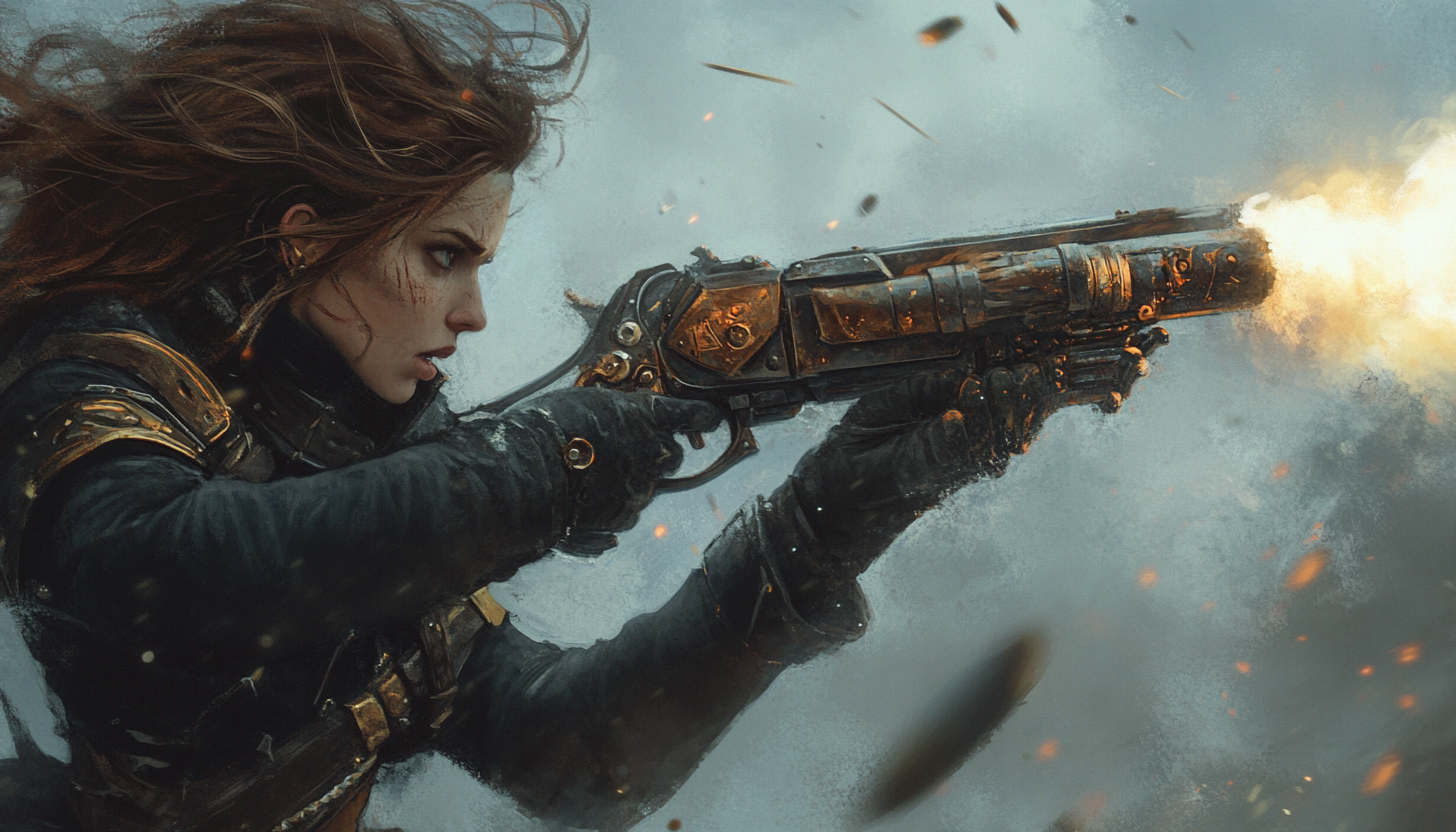
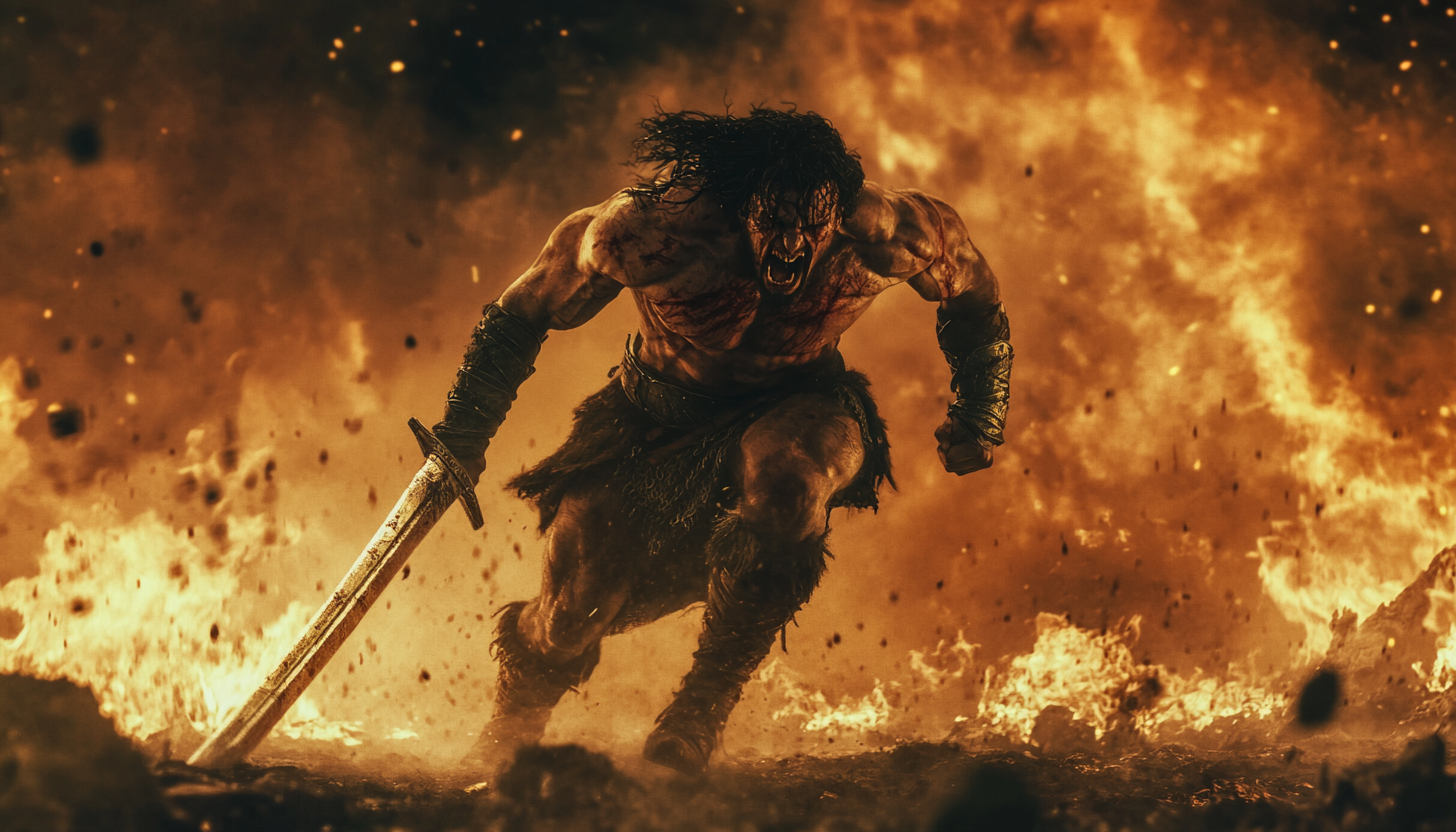
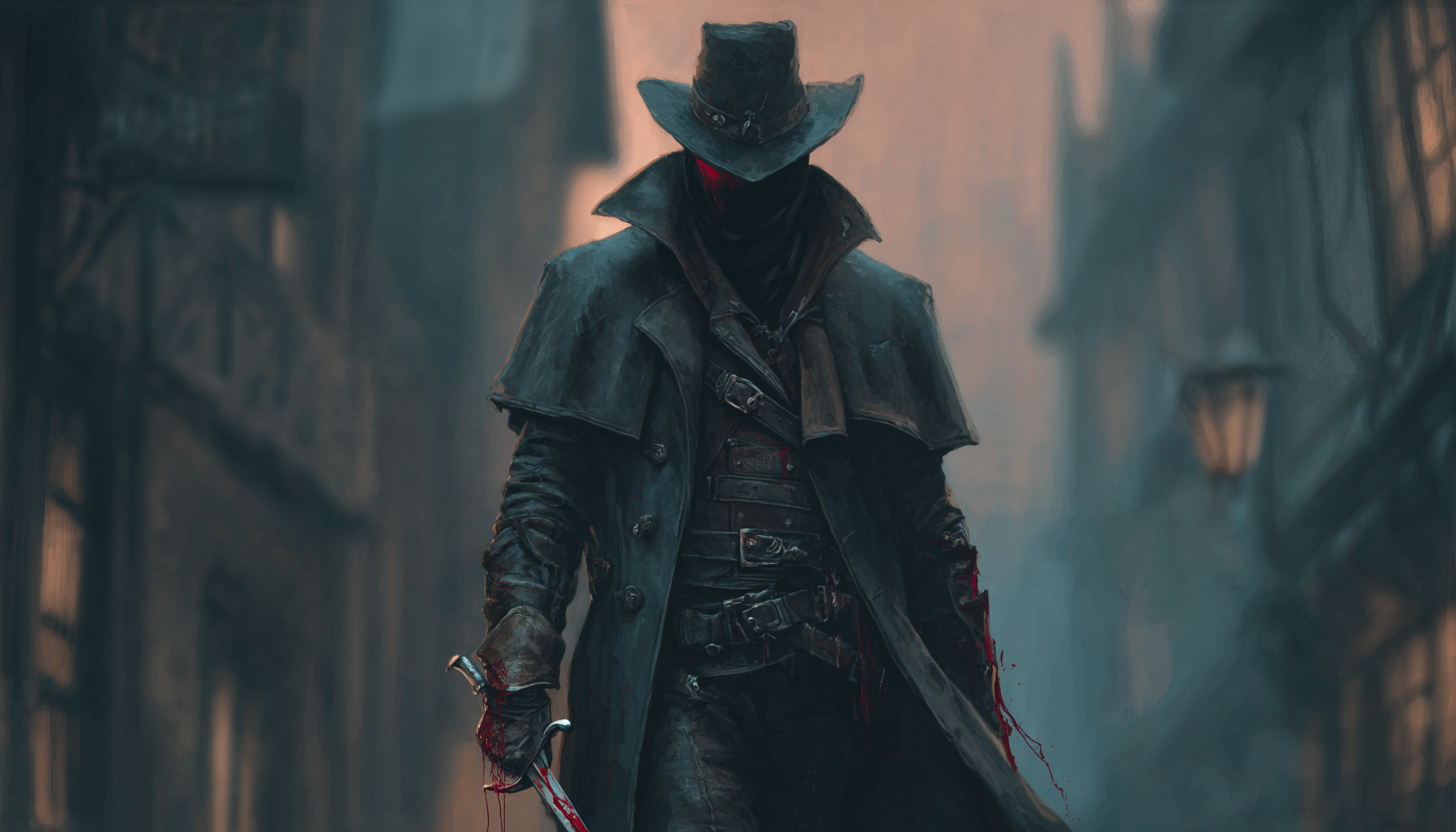
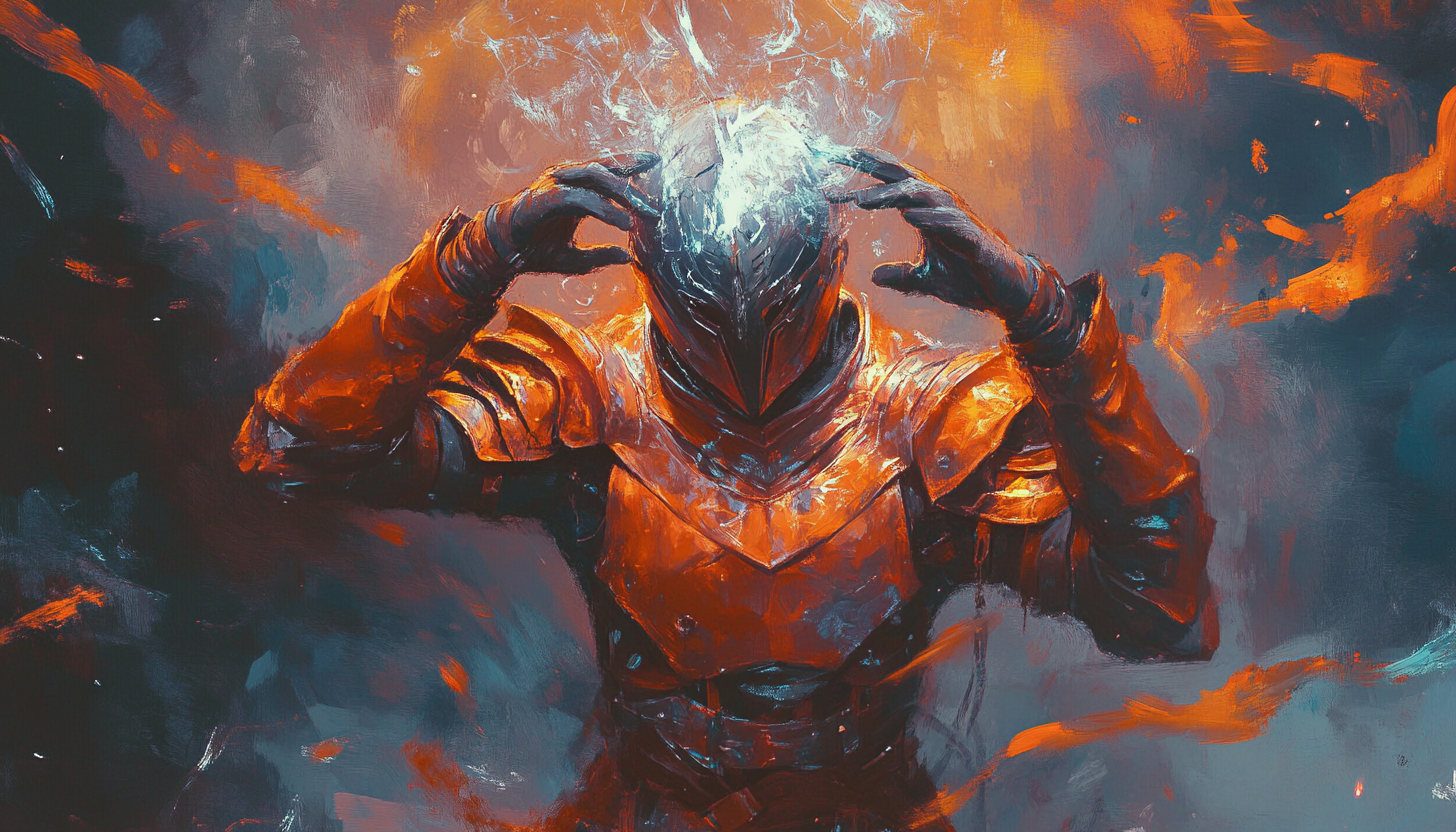

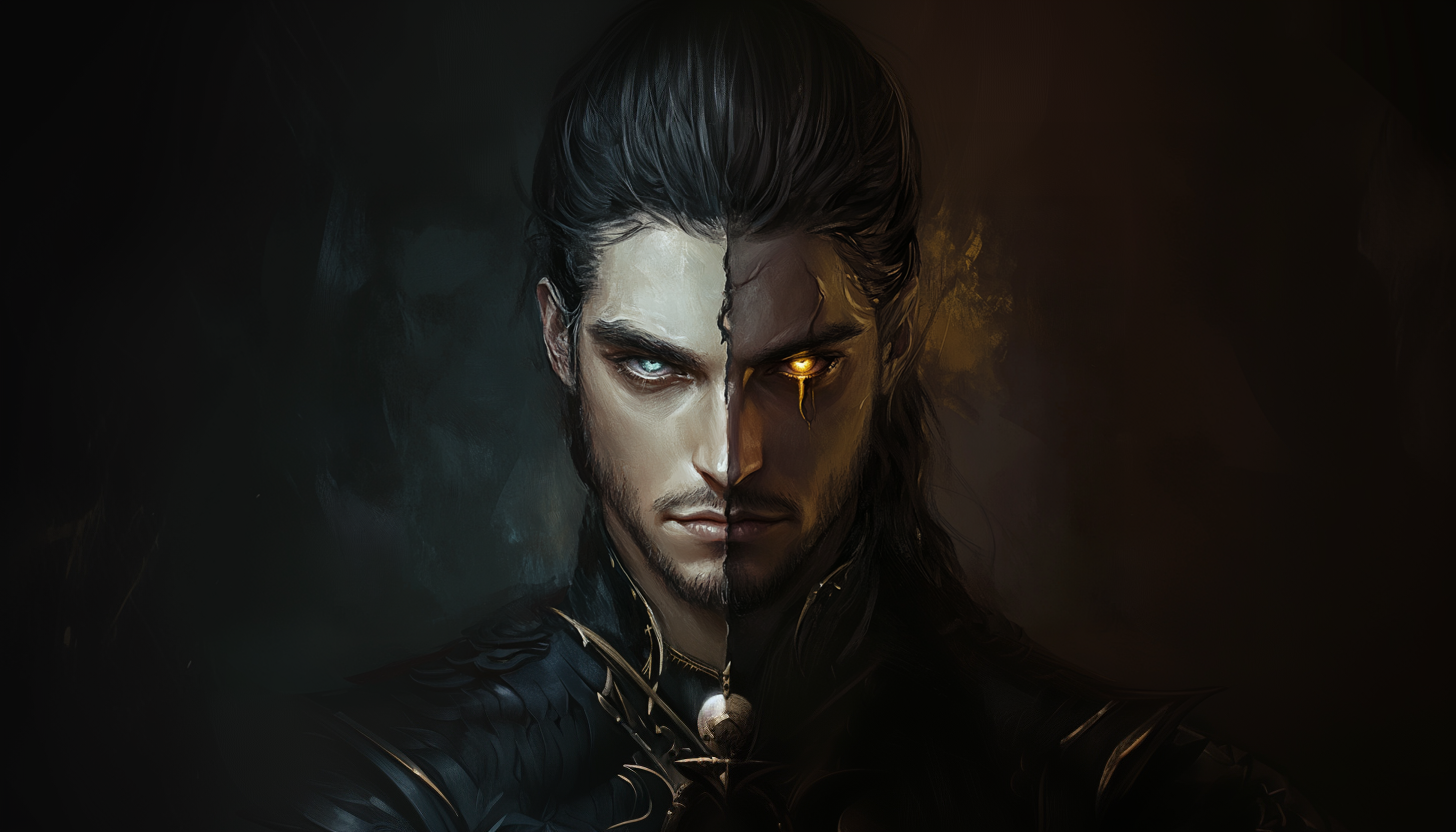
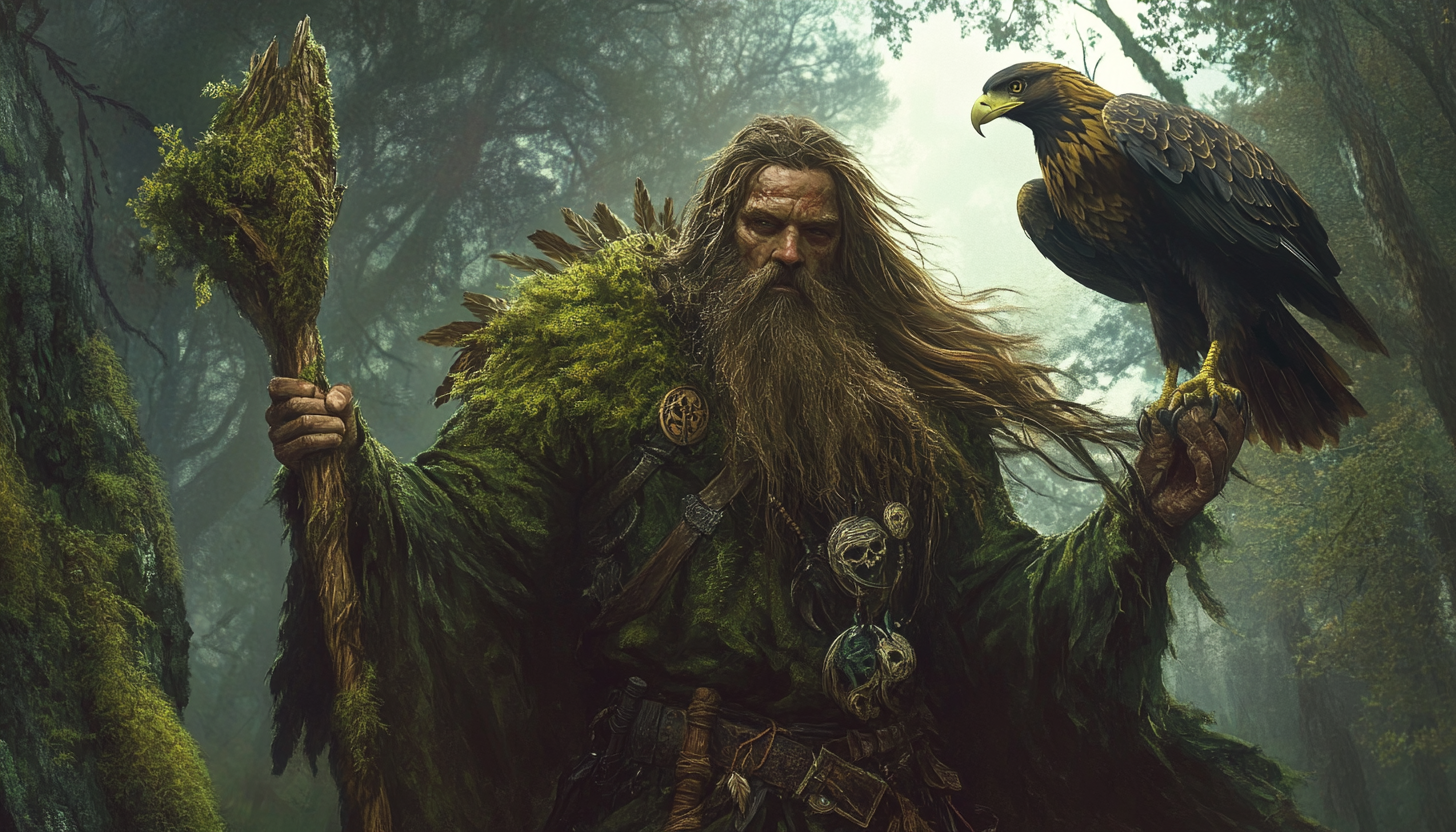
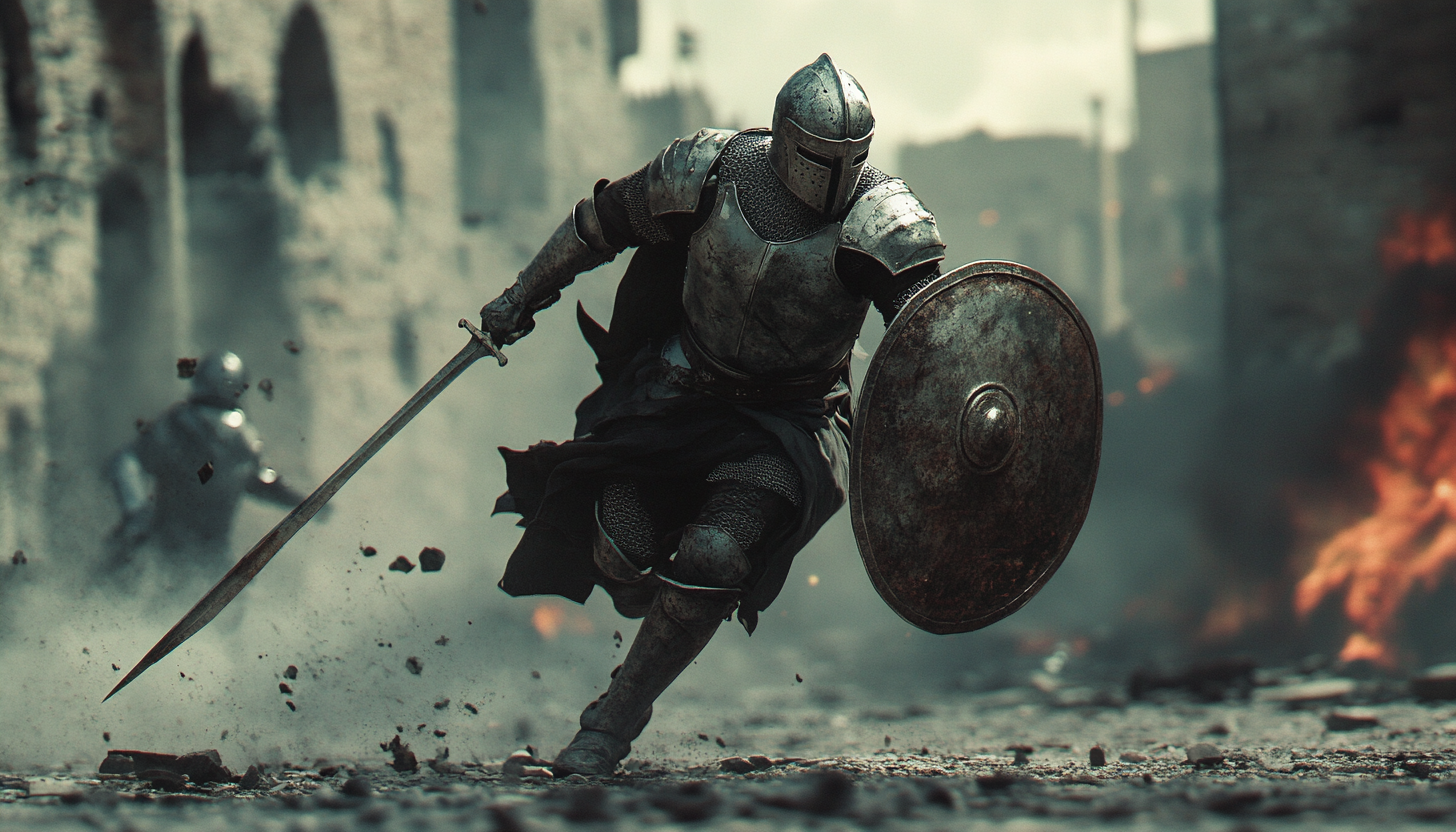
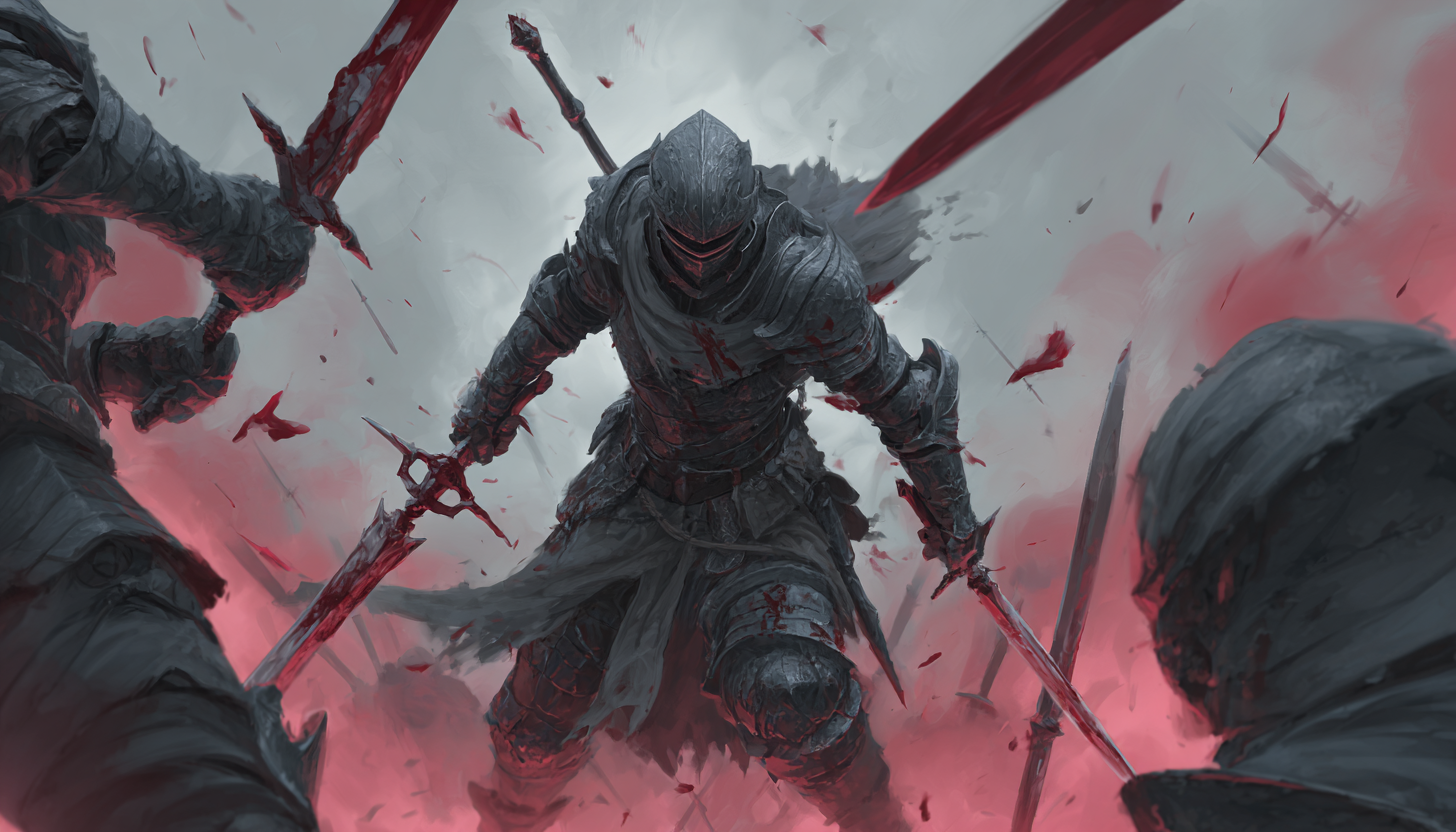
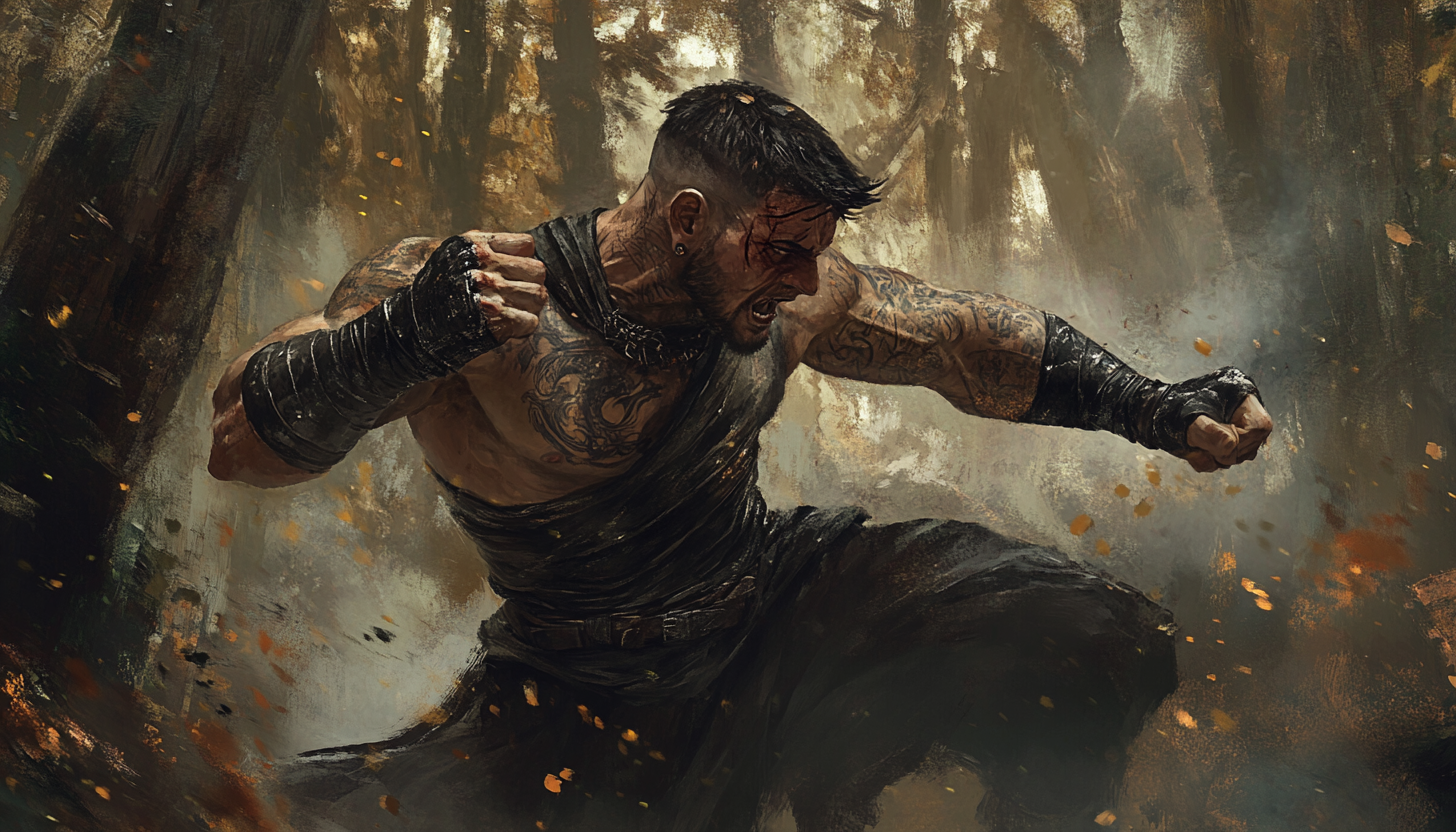
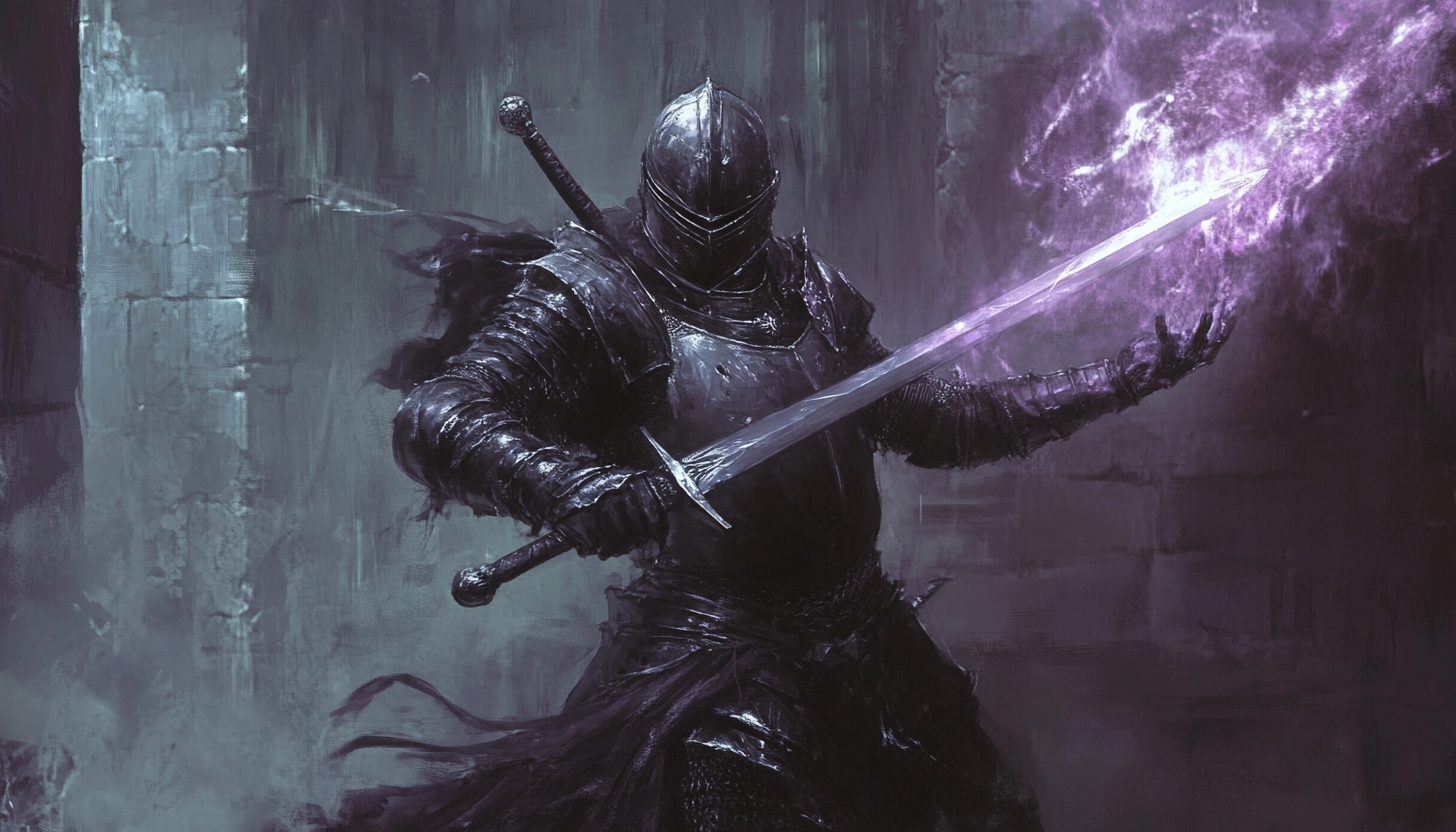
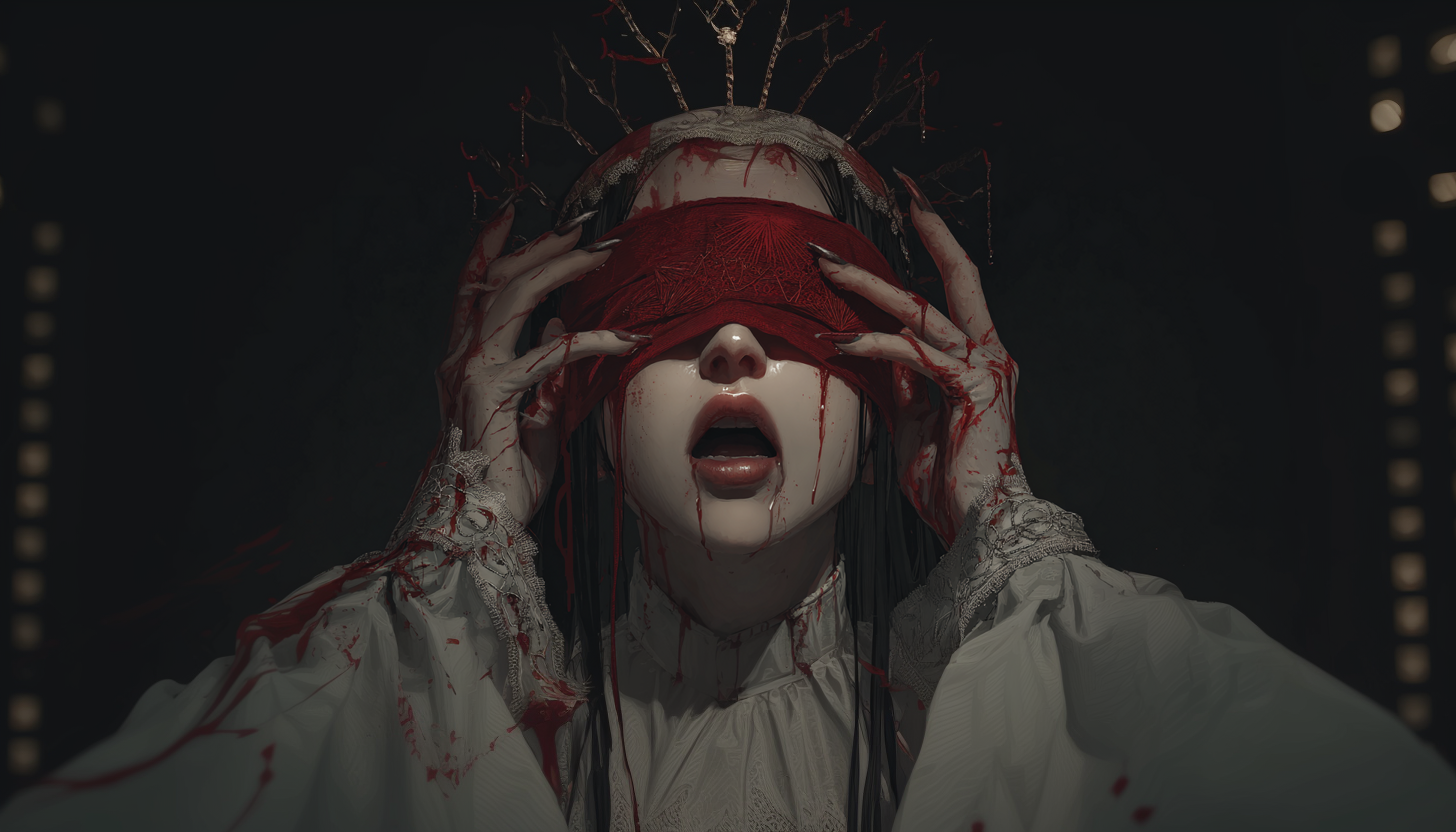
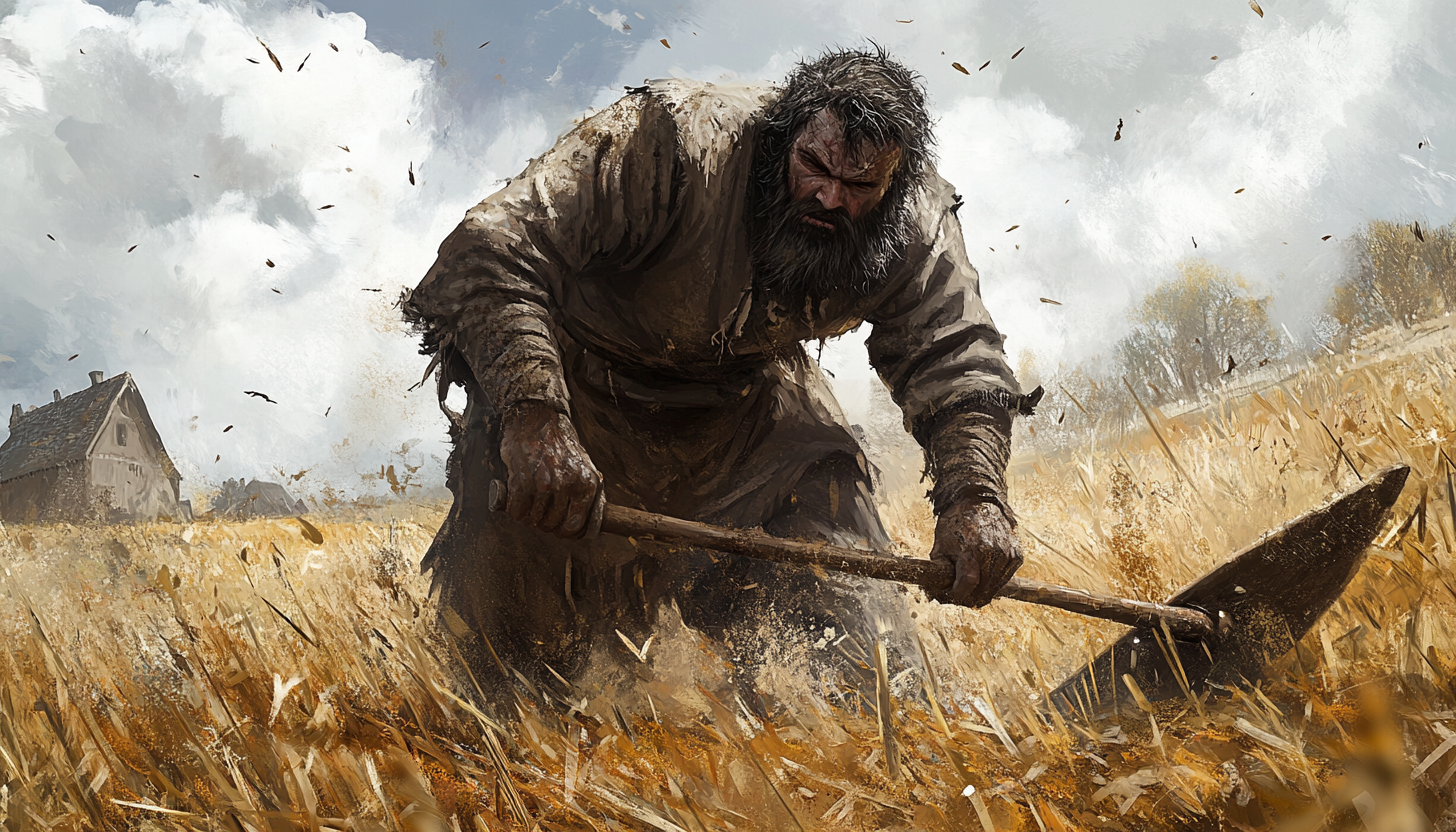
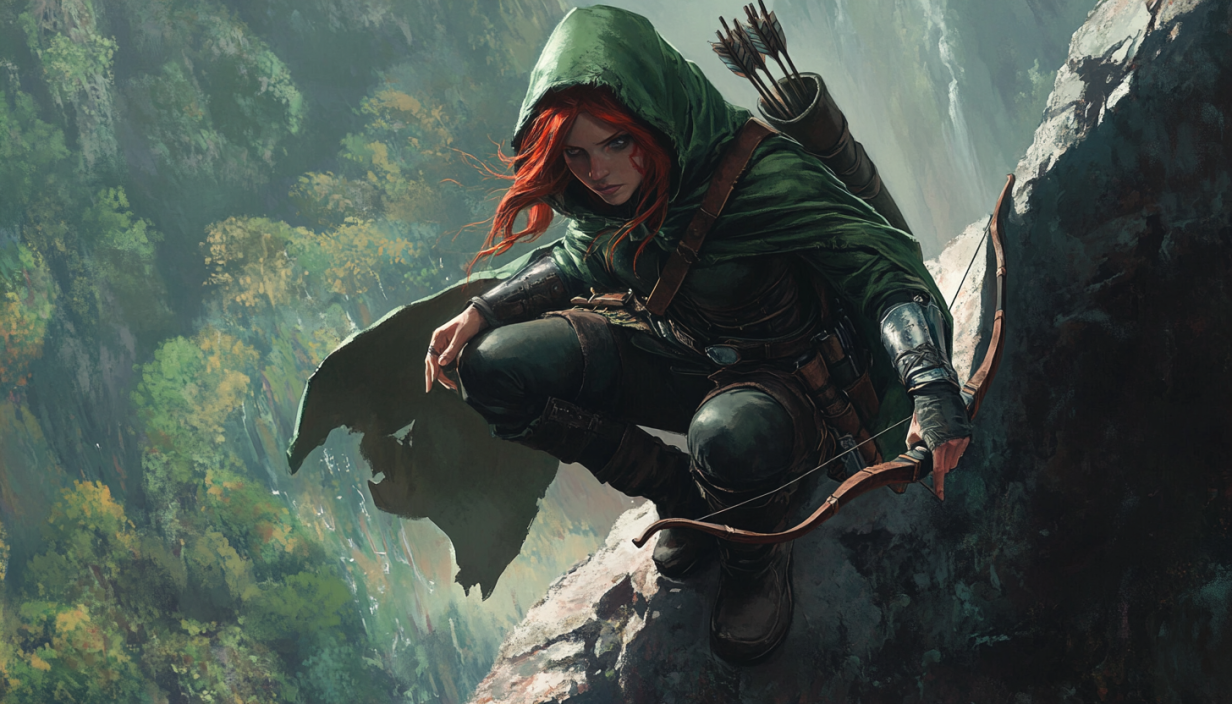
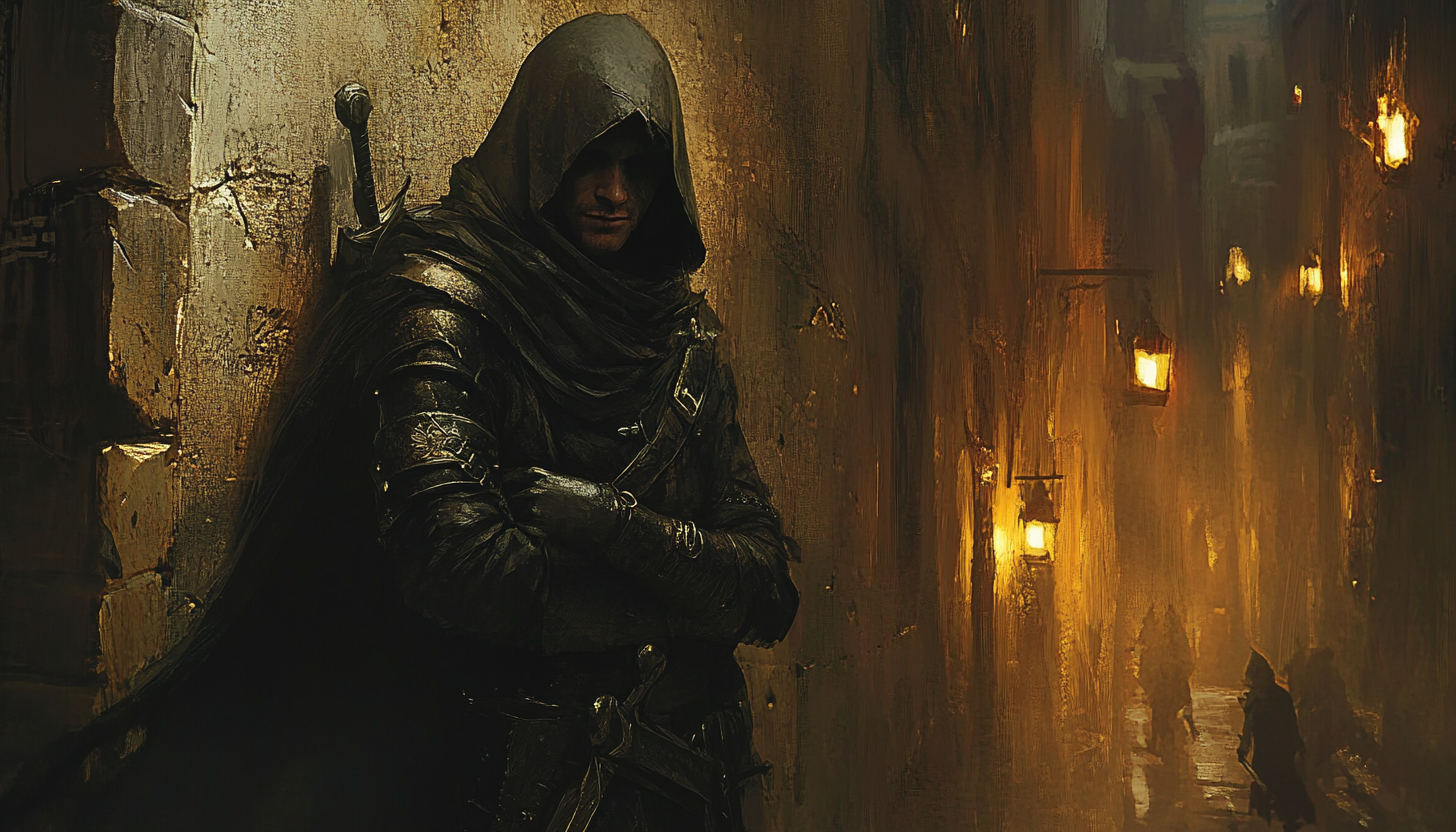
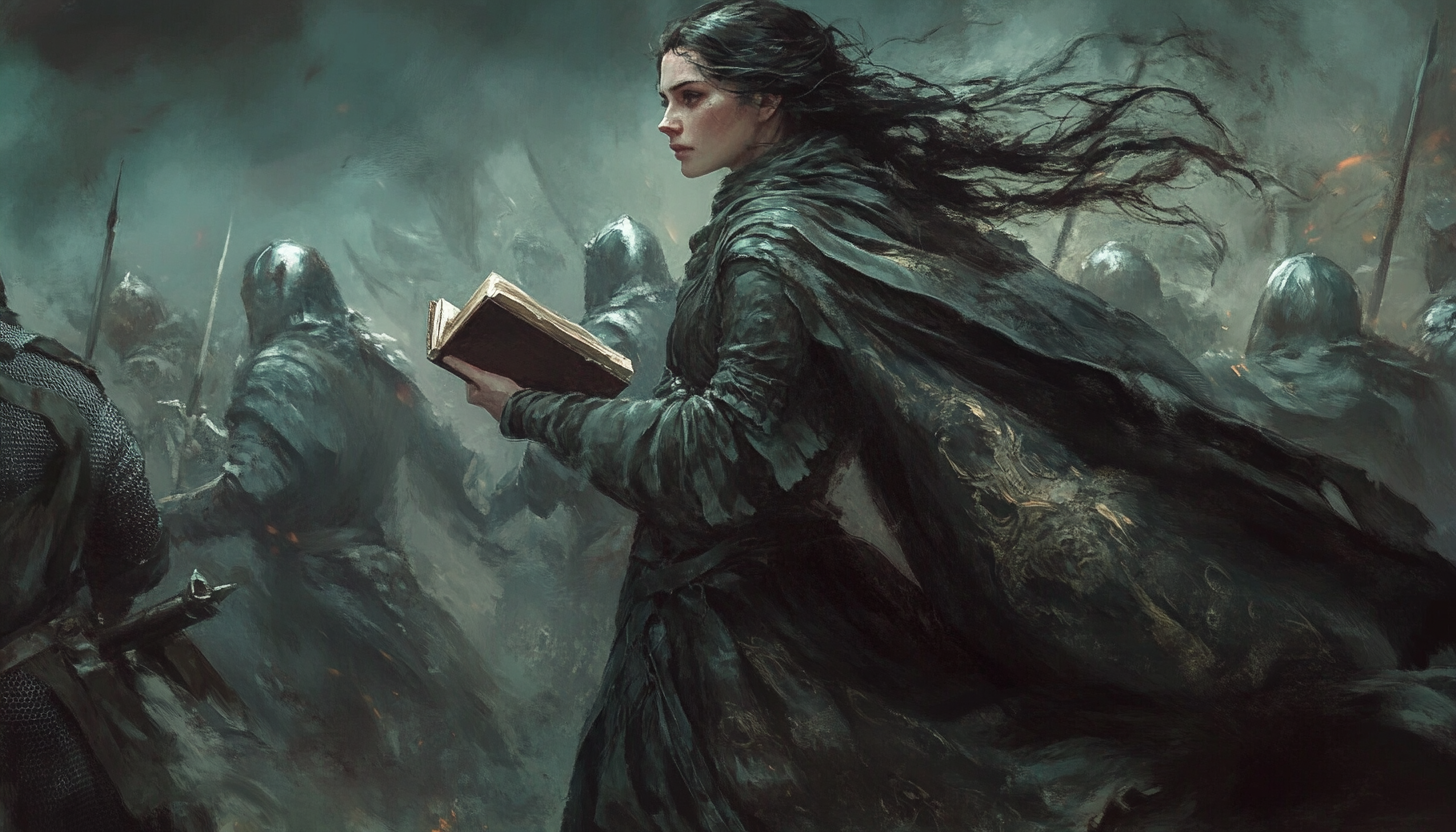
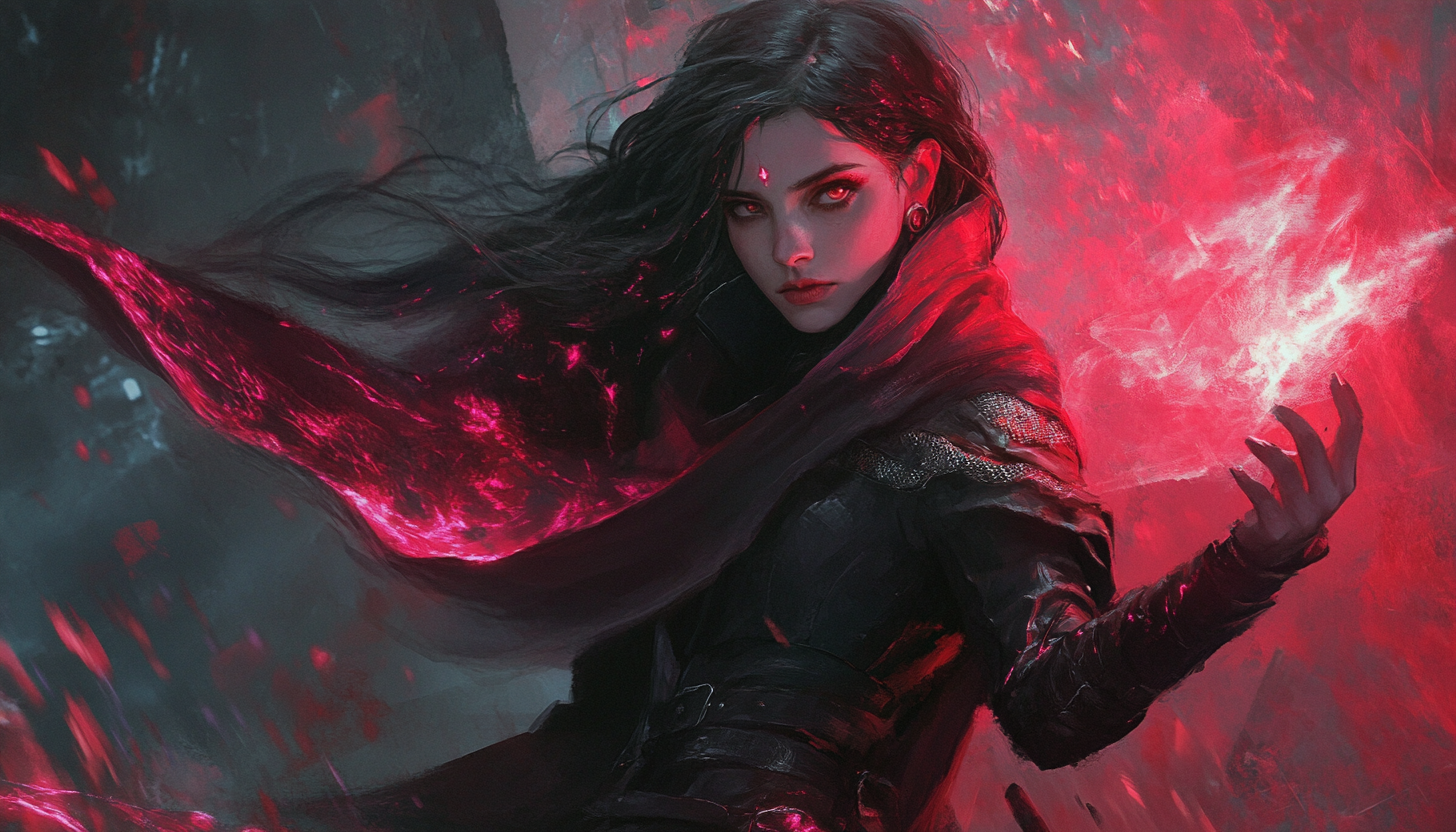
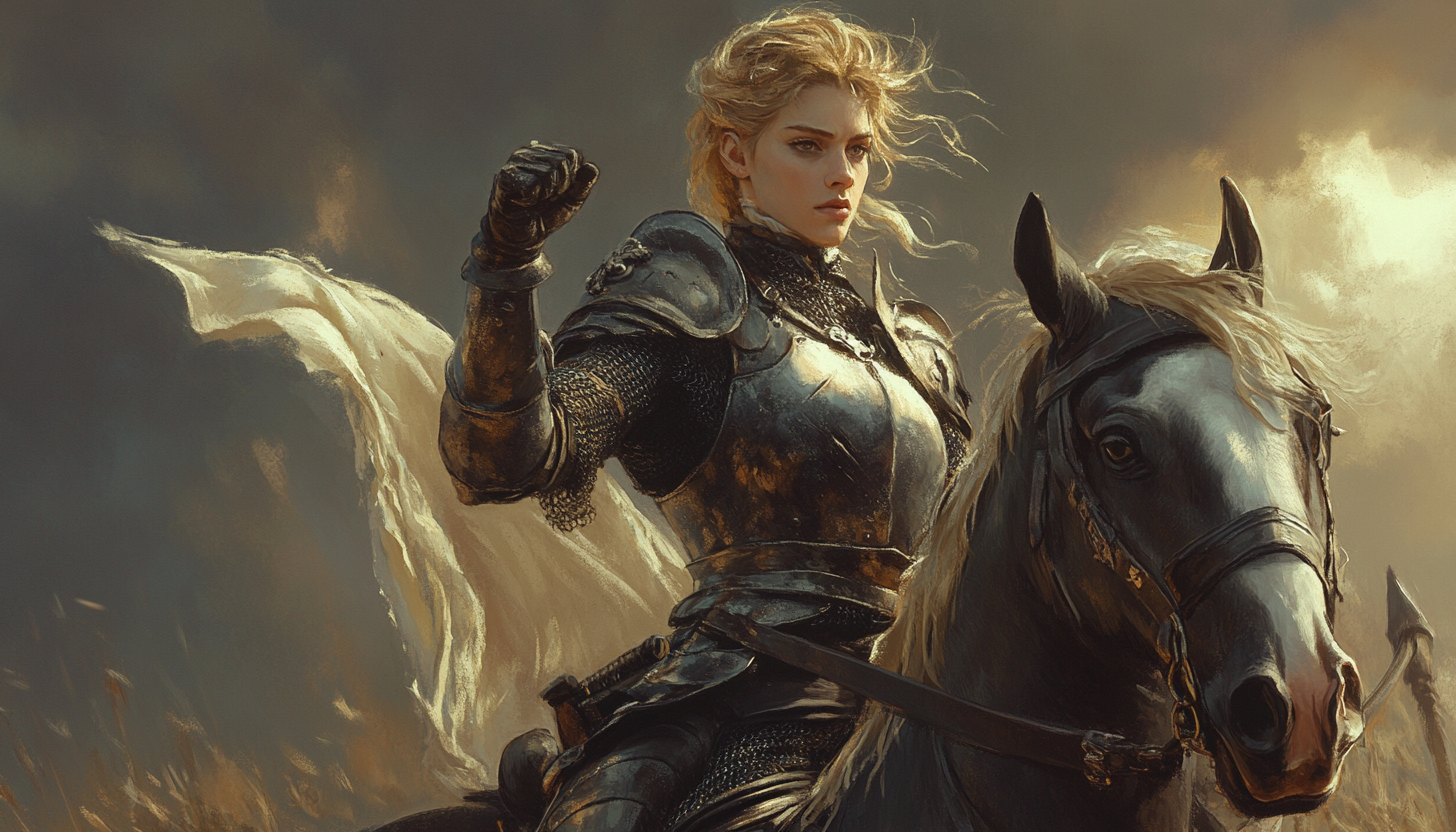

Comments